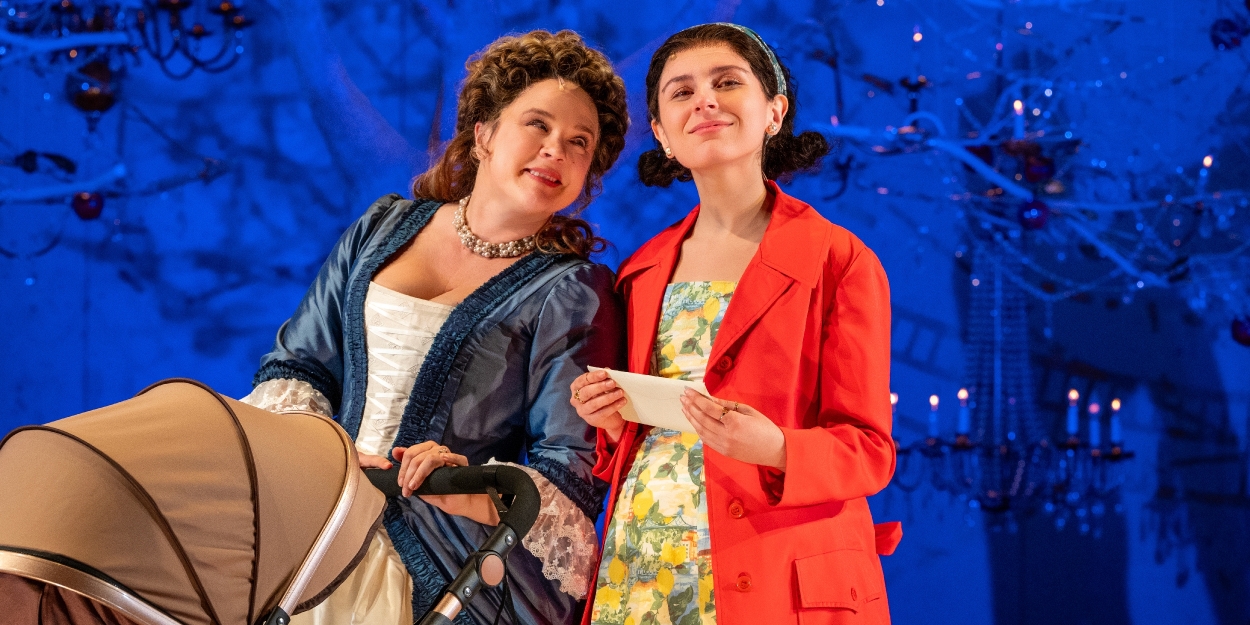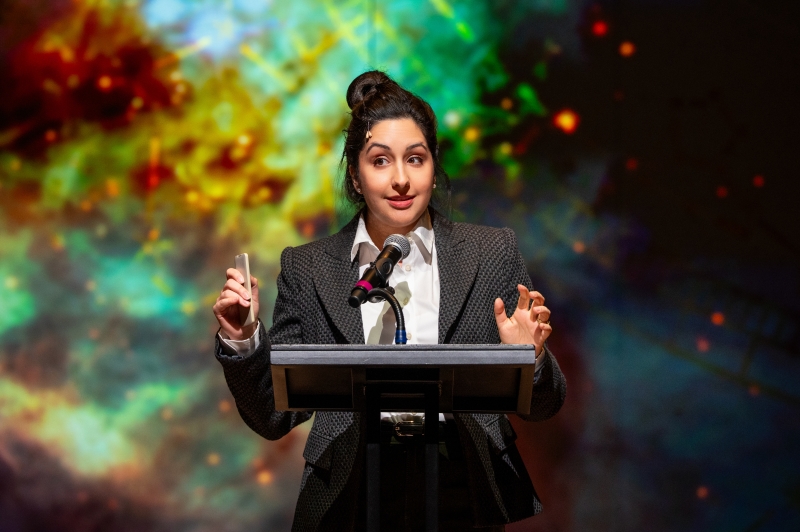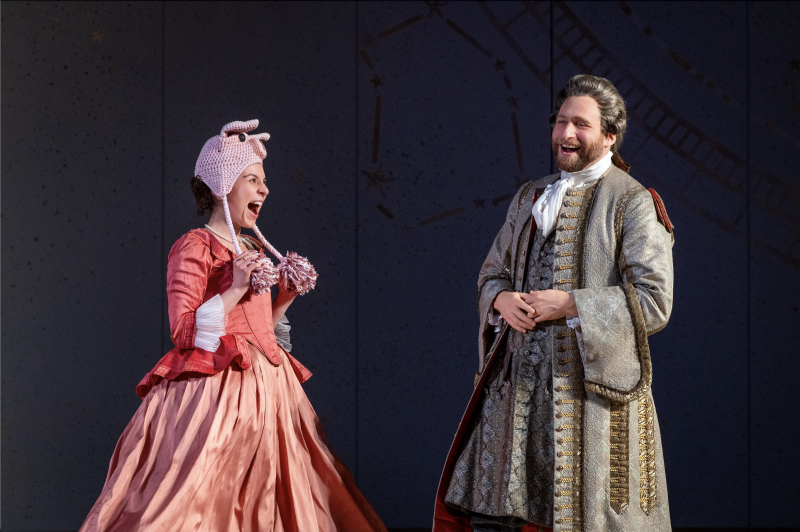Review: Minds and Hearts Collide in LEGACY OF LIGHT at McCarter Theatre
Running through April 6, this illuminating production stars Lenne Klingaman and Kimberly Chatterjee as women scientists separated by time but united by passion.

When was the last time you saw a show where working women didn’t have to choose between their career aspirations and personal relationships? Karen Zacarías’ Legacy of Light, illuminating the stage of McCarter Theatre from March 19 to April 6, 2025, gives us women characters who reject this tired dichotomy with refreshing boldness.

The production connects two brilliant women across centuries without flattening their unique circumstances. Lenne Klingaman’s Émilie du Châtelet races to complete her groundbreaking translation of Newton’s principles before her pregnancy ends—possibly in her death. When Klingaman declares, “Energy does not escape. It penetrates and transforms,” she’s talking about physics, but Zacarías is clearly speaking to something more profound—the ways women’s contributions to science, art, and human knowledge persist despite systematic erasure.
Kimberly Chatterjee’s modern astrophysicist Olivia offers a compelling counterpoint. Her performance suggests a woman who processes emotions differently but feels them no less deeply. Chatterjee avoids the trap of playing Olivia as emotionally distant—instead, she’s simply wired differently, bringing a neurodivergent quality that feels authentic rather than stereotypical. When Olivia climbs an apple tree during an emotional crisis, Chatterjee makes us feel the vertigo of a woman whose professional confidence can’t translate to personal certainty.

Director Sarah Rasmussen gives equal weight to characters who might be sidelined in less thoughtful productions. Gina Fonseca’s Millie emerges as the production’s surprising emotional anchor. As the surrogate mother carrying Olivia’s baby while harboring dreams of fashion school in Paris, Fonseca brings raw authenticity to a character whose intelligence manifests differently than her scientific counterparts. Her declaration that “parenthood isn’t rocket science” lands with knowing irony—rocket science might actually be more straightforward.
Similarly, the historical timeline gives space to Pauline (also played by Fonseca), du Châtelet’s daughter, showing how women’s potential has been stifled or nurtured depending on their access to resources and opportunities. These characters remind us that for every woman remembered by history, countless others had their brilliance redirected or dimmed entirely.

Allen Gilmore’s Voltaire is gloriously bombastic yet tender, delivering his self-important philosophical barbs with such charismatic precision that even his most maddening moments earn our reluctant affection. Trey DeLuna doubles impressively as the lovestruck Saint-Lambert and troubled Lewis, bringing nuanced humanity to men who might easily have been reduced to foils. Zack Fine completes the cast, deftly handling dual roles as du Châtelet’s accommodating husband and Olivia’s supportive schoolteacher partner Peter, who shifts between comedic befuddlement and heartbreaking sincerity as he recounts seemingly ordinary dreams.
The production’s technical elements create visual poetry that literally illuminates its themes. Andrew Boyce’s sparse but evocative scenic design features an ethereal tree that serves as both connection to the past and pathway to the stars. Co-lighting designers Jane Cox and Tess James breathe life into the central metaphor of light itself—revealing, concealing, and transforming space. When du Châtelet delivers her pivotal discovery that “light has no mass,” the rainbow-colored lights washing over the stage demonstrate her theory visually.
The play’s discussion of weighty topics including science, surrogacy, legacy, and women’s choices never feels didactic. Instead, each character’s journey unfolds with the organic complexity of real human experience. When Olivia presents her discovery of a planet’s embryonic core to her colleagues, the imagery of creation and birth merges the professional and personal realms these women navigate. One brilliant scene has Millie experiencing overwhelming pregnancy emotions while the scientifically-minded Olivia attempts to process them through clinical language—a perfect encapsulation of how the play balances the rational and the emotional with humor and heart to avoid being pretentious or saccharine.
McCarter Theatre has enhanced this production through an innovative collaboration with MoVA Realities, a Princeton student-founded startup from Keller Center’s eLab Accelerator Program. Their interactive, AI-powered lobby experience invites audiences to engage with the play’s themes through personality quizzes and 3D-printed keepsakes, extending the theatrical experience beyond the traditional boundaries of the stage. This marriage of classical theater and cutting-edge technology points toward exciting new possibilities for audience engagement.
Legacy of Light leaves us with a provocative question: in a universe governed by immutable laws of physics, what becomes of all our striving, creating, and loving? The play suggests that perhaps love, like light, has properties we’re still discovering—it can be both wave and particle, both scientific principle and human experience. By refusing to separate heart from mind, this production illuminates pathways through which women’s multiple legacies—intellectual, biological, emotional—continue to transform our understanding of both science and ourselves.
Reader Reviews

Videos

